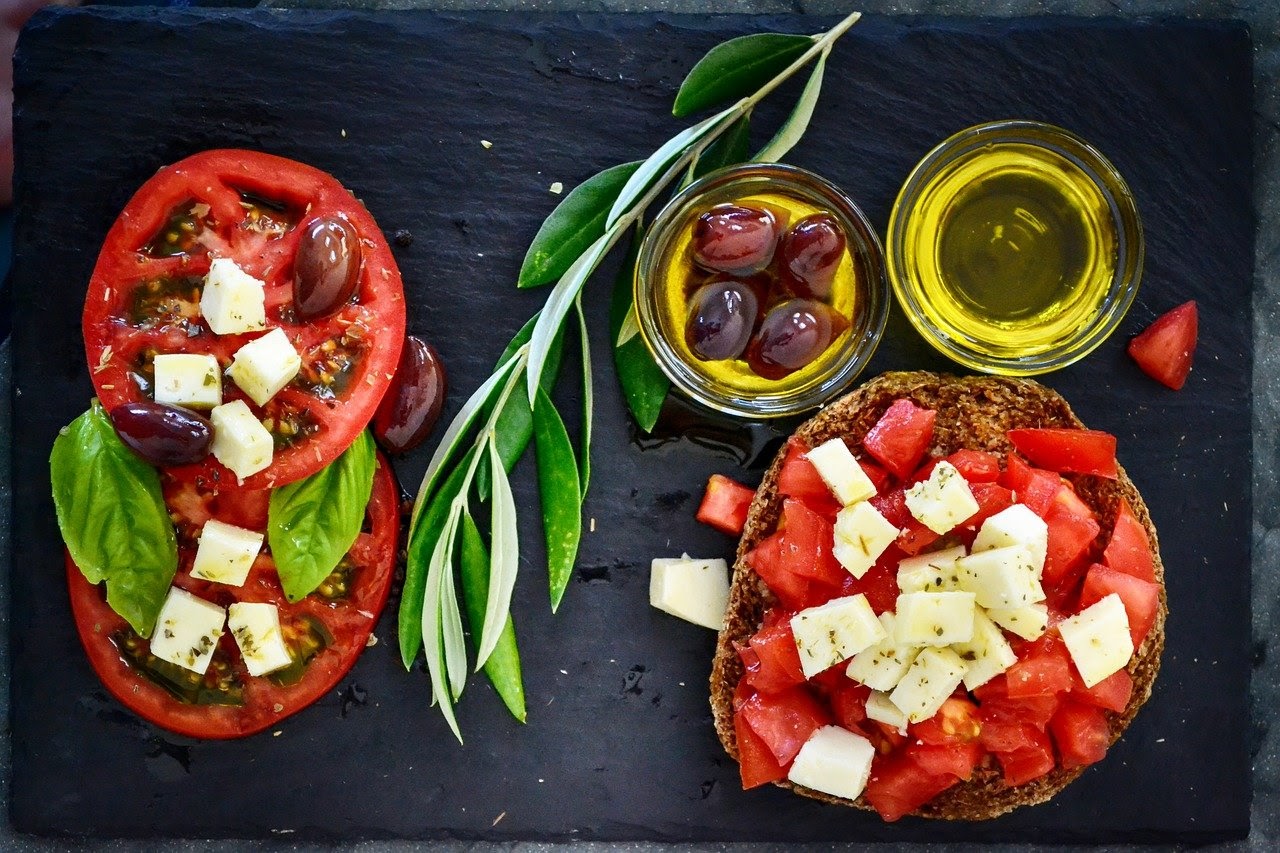The heart-healthy Mediterranean Diet initially exploded in popularity in the 1990s and has become a staple in countless households. It is generally based on the eating habits of residents of Spain, Italy, and Greece. Touted for numerous health benefits, the Mediterranean Diet centers around the consumption of olive oil, fish, legumes, fruit, vegetables, and unrefined cereals. The diet also includes a moderate allowance for dairy and wine and low consumption of animal meats. The experts at Texas Hill Country Olive Co., a local Texas olive oil company, break down the basics of the Mediterranean Diet.
Benefits of Eating Mediterranean with Texas Olive Oil
Throughout various studies, the Mediterranean Diet has been linked to an overall reduction in mortality, and a minimized risk for heart disease, diabetes, neurodegenerative diseases, and other ailments.For obese individuals, the Mediterranean Diet can also be helpful in losing weight, and maintaining a healthy weight.
The Mediterranean Diet is low in saturated fat, and high in healthy monounsaturated fat. Many of the attributed health benefits come from this facet of the diet. The experts at Texas Hill Country Olive Co. explain that olive oil is a staple in the Mediterranean Diet, lending oleic acid and polyphenols to the healthy diet. These have been touted as helpful in maintaining healthy cholesterol levels, and protecting against oxidation of blood lipids.
The Mediterranean Food Pyramid
Like most other diets, the Mediterranean Diet follows consumption guidelines. These guidelines create the infrastructure for following the diet, and make it easier to create recipes that follow general principles. In this food pyramid, the cornerstone is a commitment to healthy weight maintenance, and regular exercise. Whole grain foods are eaten at most meals, and accompanied by the presence of plant oils, like olive oil. All types of vegetables are eaten in abundance, and fruits are recommended 2 to 3 times per day. Nuts, seeds, and legumes can be consumed roughly 1 to 3 times per day. As the pyramid closes in, fish and eggs are recommended 1 to 2 times per day, in addition to cheese and dairy. Used most sparingly, red meat, butter, white pasta, and sweets are at the top of the pyramid. Alcohol can be paired with food in moderation, though the Mediterranean Diet doesn’t condone excessive consumption of sugary cocktails, or even large amounts of wine.
Implementing Texas Olive Oil in Mediterranean Methods
To successfully implement staples of the Mediterranean Diet into everyday cooking, the experts at Texas Hill Country Olive Co. recommend making a few simple swaps. To maximize flavor profiles of most foods, and gain heart-healthy benefits, swap out butter in most recipes for olive oil. The infused Texas olive oil blends offered by Texas Hill Country Olive Co. pack a flavorful punch, and take the guesswork out of creating delicious flavor profiles. With flavor infusions ranging from blood orange to jalapeno, these infused Texas olive oils lend a delicious finishing touch when drizzled on salads, or create a flavor injection for fish, vegetables, and other baked items.
While simple grains and carbohydrates are a staple in many American diets, the Mediterranean Diet relies mostly on whole grains. Even recipes that don’t necessarily follow the Mediterranean Diet can be made a little more compliant by switching to whole grain products. For pasta dishes, swap out traditional pasta for whole grain alternatives. In lieu of white rice and simple carbohydrates, consider trying ancient grains, farro, and bulgur. Instead of using creamy sauces to accompany pasta sides, consider drizzling finished pasta with olive oil, and a slew of various herbs and spices for a unique flavor profile.
The Mediterranean Diet aims for regular consumption of Omega-3 fatty acids found in many fish. Salmon, trout, and tuna offer these heart-healthy benefits, and can be great meal substitutions for red meat, or processed meat products. These fish can be broiled, sauteed, or easily prepared in the oven. To create robust flavor profiles, the experts at Texas Hill Country Olive Co. recommend using various spices and Texas olive oil to coat fish prior to preparation. To follow the Mediterranean Diet, the experts recommend avoiding fried fish, and other fried foods in general.
Traditional meat consumption is limited in the Mediterranean Diet, and meat is typically replaced by fish, beans, and poultry. Occasional meat consumption is allowed, and can be kept relatively healthy by following a few suggestions. Lean meat is the most appropriate, and shouldn’t be fried. It can be prepared in a multitude of ways, and can be flavored with a brushing of Texas olive oil prior to baking or cooking. This will ensure that meat is flavorful, robust, and tender, without the use of unhealthy counterparts, like butter.
Resources and Inspiration
When seeking inspiration for new recipes and cooking ideas that follow the Mediterranean Diet, the healthy foodies at Texas Hill Country Olive Co. look to the internet for guidance. From hummus toast with fresh vegetables for breakfast, to a simple tomato and cucumber salad that can accompany any meal, the internet is ripe with recipes to guide novice Mediterranean Diet followers. The diet is continuously touted for various health benefits, and thus, recipes are plentiful on trusted cooking sites, message boards, and other sources. For those who prefer physical materials, there are various Mediterranean Diet cookbooks readily available. With a few general pivots, every diet can be made a little bit more Mediterranean. By swapping saturated fats with healthy olive oil, even fledgling followers of the Mediterranean Diet can reap the benefits of this type of eating.



